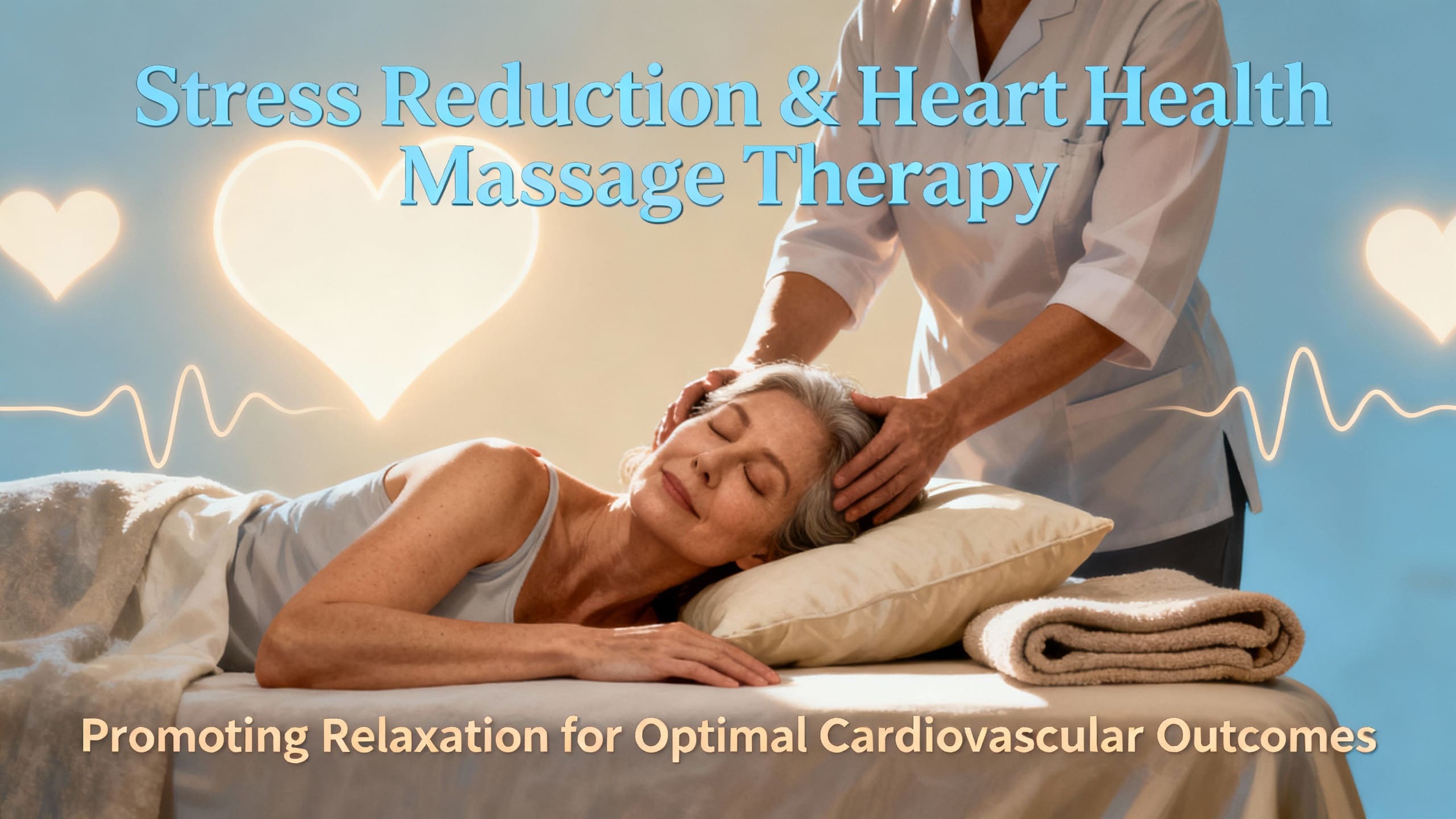Introduction
Alternative medicine is gaining traction as a valuable adjunct to conventional treatments for enhancing heart health. Therapies such as acupuncture, massage, and breathwork are increasingly explored for their roles in reducing stress, modulating heart rate variability (HRV), and improving overall cardiovascular outcomes. These alternative approaches aim not only to alleviate physical discomfort but also to bolster mental and emotional wellbeing, laying the groundwork for an optimal heart. This article examines the clinical evidence on stress reduction, HRV changes, pain relief, and adherence benefits offered by mind-body care, while providing practical insights for integrating these therapies into everyday life.
What is Review evidence on stress reduction, HRV changes, pain relief, and adherence advantages of mind‑body care.?
Mind-body care encompasses therapeutic practices—like acupuncture, massage, and breathwork—that emphasize the interplay between psychological and physiological health. These interventions, historically used in traditional medicine, have recently garnered scientific interest for their potential benefits in cardiovascular health. Notably, they target stress mechanisms, stabilize the autonomic nervous system, improve HRV, and may promote heart health by supporting adaptive responses and pain relief Yamamoto, 2022, Lee et al., 2019.
Benefits and Outcomes in Heart Disease
Emerging clinical evidence suggests that mind-body therapies can play a pivotal role in optimizing heart health and reducing the risk of cardiovascular disease. Acupuncture has demonstrated efficacy in lowering blood pressure and modulating HRV, thus improving autonomic balance and supporting an optimal heart Lee et al., 2019. Massage therapies have been shown to decrease blood pressure, alleviate pain, and reduce levels of stress hormones, all of which are crucial for heart health Moyer et al., 2004. Breathwork, particularly slow or mindful breathing practices, can lower stress, enhance vagal tone, and favorably impact HRV, further supporting cardiovascular function Laborde et al., 2017. Regular engagement in these practices may decrease systemic inflammation and improve adherence to heart-healthy habits Mills et al., 2015.
Research Insights
Recent studies underscore the evidence base behind mind-body care for heart health. For instance, a randomized controlled trial found that acupuncture can significantly improve HRV and lower blood pressure in hypertensive patients Lee et al., 2019. Systematic reviews of massage therapy reported statistically significant reductions in both systolic and diastolic blood pressure, as well as improvements in perceived stress Moyer et al., 2004. Further, research on breathwork highlights its positive effects on HRV—a key indicator of autonomic flexibility and optimal heart functioning Laborde et al., 2017. Mind-body practices also show improved adherence to healthy lifestyle interventions post-cardiac events, which is vital for secondary prevention Mills et al., 2015.
Practical Applications
Integrating alternative therapies into daily routines can be straightforward and impactful for heart health. Acupuncture sessions are typically recommended once or twice weekly by licensed clinicians, with research suggesting benefits after four to eight weeks Lee et al., 2019. Massage therapy can be safely incorporated as a weekly intervention for adults, especially those with hypertension or chronic stress, to promote an optimal heart Moyer et al., 2004. Breathwork practices, such as diaphragmatic or paced breathing, can be practiced daily for 10-20 minutes to boost HRV and stress resilience Laborde et al., 2017. These approaches are particularly beneficial for individuals with high stress, poor sleep, or early hypertension, but should always be discussed with healthcare providers for optimal results.
Risks & Limitations
While generally safe when performed by trained practitioners, alternative therapies are not without risk. Acupuncture may cause minor bruising or, rarely, infection if sterile techniques are not followed NCCIH, 2022. Massage therapy can occasionally result in muscle soreness or adverse reactions in those with bleeding disorders or skin conditions Moyer et al., 2004. Breathwork is safe for most, but intense techniques may not be appropriate for those with severe cardiac disease or certain respiratory disorders Laborde et al., 2017. Importantly, the scientific evidence, while promising, is still evolving—large-scale randomized trials are ongoing and more data are needed for precise guidelines.
Key Takeaways
- Acupuncture, massage, and breathwork support heart health by lowering stress, modulating HRV, and improving cardiovascular outcomes.
- These therapies are most effective as complementary approaches to conventional heart disease prevention and management for an optimal heart.
- Scientific studies suggest potential benefits for blood pressure, inflammation, pain relief, and lifestyle adherence.
- Risks are minimal when delivered by trained professionals, but individuals with complex heart or health conditions should consult a physician.
- Ongoing research is clarifying the exact role of these mind-body approaches in cardiac care.
Frequently Asked Questions
How does acupuncture benefit heart health?
Research shows that acupuncture can decrease blood pressure, improve HRV, and reduce stress—all beneficial for an optimal heart Lee et al., 2019.
Is massage therapy effective for cardiovascular wellness?
Massage has been linked to reductions in both systolic and diastolic blood pressure, as well as improvements in mood and stress levels Moyer et al., 2004.
How does breathwork influence heart health?
Regular breathwork exercises can enhance HRV, decrease anxiety, and optimize autonomic balance for a healthier heart Laborde et al., 2017.
Are these alternative therapies safe for everyone?
While generally safe, people with complex medical conditions should consult their healthcare provider before starting alternative therapies NCCIH, 2022.
Suggested Links
- American Heart Association – Healthy Living
- National Center for Complementary and Integrative Health
- PubMed – Search for Alternative Therapies & Heart Health
Conclusion
Alternative therapies such as acupuncture, massage, and breathwork represent promising adjuncts for optimizing heart health. By lowering stress, improving HRV, and supporting adherence to healthy routines, these approaches may lead to better outcomes for individuals seeking an optimal heart. While the overall evidence is encouraging, integrating these therapies should be part of a broader, medically-guided strategy. Consider discussing mind-body care options with your doctor to see how they might fit into your cardiovascular wellness journey.



